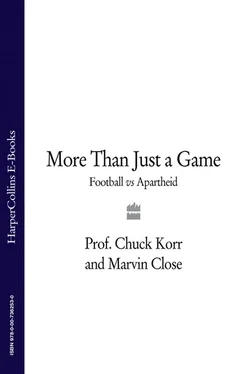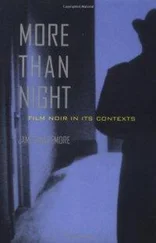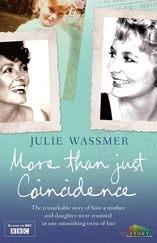More Than Just A Game
Football v Apartheid
Chuck Korr and Marvin Close

To the men of Robben Island and the free South Africa they helped to create.
Cover Page
Title Page More Than Just A Game Football v Apartheid Chuck Korr and Marvin Close
Dedication To the men of Robben Island and the free South Africa they helped to create.
Preface by Sepp Blatter Preface by Sepp Blatter This book strives to preserve and convey the amazing history of the Makana Football Association, founded on Robben Island. Following FIFA rules, principles and statutes, the association used football to create a space of dignity, respect, and democracy on this infamous island, symbol of apartheid. More Than Just a Game is about those who played football on Robben Island and who have since become South Africa’s leaders: Jeff Radebe, Jacob Zuma, Mark Shinners, Anthony Suze, Marcus Solomon, Tokyo Sexwale, and Dikgang Moseneke, the first chairman of the Makana FA who was democratically elected in 1969. Above all, it is the story of the thousands of relatively unknown prisoners whose lives were enriched by football and whose sacrifices made possible the eventual creation of a free South Africa. Expelled from FIFA in 1976, South Africa was finally readmitted in 1992, thanks to the efforts of my predecessor, Dr João Havelange. It was an emotional day on Saturday 15 May 2004, when I had the privilege to open the envelope and announce South Africa as organizers of the FIFA World Cup 2010, the first one ever to take place on the African continent. This book celebrates football, the universal game, and the passion of millions of fans. But it is more than just a game, since it unites us in a world which is becoming increasingly divided. Football is indebted to the footballers of Robben Island. For the game! For the world! Joseph S. Blatter
Introduction
1 The Apartheid State
2 The Price of Resistance
3 The Struggle for Prisoners’ Rights
4 The Need to Organize Football
5 Football Establishes Itself
6 The Atlantic Raiders Affair
7 Growing Older with Football
8 Two Football Codes on One Island
9 Something More than Football
10 Football Struggles to Survive
11 The Arrival of the Soweto Generation
Epilogue Life After the Island
The Story Behind
Index
Acknowledgements
Copyright
About the Publisher
This book strives to preserve and convey the amazing history of the Makana Football Association, founded on Robben Island. Following FIFA rules, principles and statutes, the association used football to create a space of dignity, respect, and democracy on this infamous island, symbol of apartheid.
More Than Just a Game is about those who played football on Robben Island and who have since become South Africa’s leaders: Jeff Radebe, Jacob Zuma, Mark Shinners, Anthony Suze, Marcus Solomon, Tokyo Sexwale, and Dikgang Moseneke, the first chairman of the Makana FA who was democratically elected in 1969. Above all, it is the story of the thousands of relatively unknown prisoners whose lives were enriched by football and whose sacrifices made possible the eventual creation of a free South Africa.
Expelled from FIFA in 1976, South Africa was finally readmitted in 1992, thanks to the efforts of my predecessor, Dr João Havelange. It was an emotional day on Saturday 15 May 2004, when I had the privilege to open the envelope and announce South Africa as organizers of the FIFA World Cup 2010, the first one ever to take place on the African continent.
This book celebrates football, the universal game, and the passion of millions of fans. But it is more than just a game, since it unites us in a world which is becoming increasingly divided.
Football is indebted to the footballers of Robben Island.
For the game! For the world!
Joseph S. Blatter
18 July 2007. Robben Island
It was an unlikely sight: football legends Pelé, Samuel Eto’o, Ruud Gullit, George Weah, and many other of the world’s top players gathered behind razor-wire prison fences and sentry towers on a tiny, windswept island 12 kilometres off the coast of Cape Town. They lined up on a bumpy, rutted pitch and took it in turns to shoot eighty-nine footballs into a set of rusting goal posts, one for each of Nelson Mandela’s years on his birthday.
They were there, along with FIFA officials, South African World Cup 2010 organizers, and prominent South African politicians to honour Mandela at the place with which he is most identified – Robben Island Prison: the high security jail that for three decades housed Mandela and thousands of other political prisoners.
But there was another reason that FIFA had chosen to stage this unorthodox birthday celebration on the ex-prison’s football pitch. Once the mighty band of football greats had finished striking the balls into the goal, five former prisoners, Anthony Suze, Sedick Isaacs, Lizo Sitoto, Mark Shinners, and Sipho Tshabalala, stepped out onto the grass and took centre stage. These men knew the pitch well, for they had laid, rolled, and irrigated it many years previously, and they had made the goal posts and nets with their own hands, from debris washed up on the shingle beach around Robben Island.
The five were unknown outside South Africa and scarcely known to anyone in their own country. They had survived long-term imprisonment on Robben Island by never losing faith that one day their fight would lead to a free South Africa, and football had played a major role in their battle. Though much has been written about how prisoners organized themselves politically on the island, the outside world knows little about how vitally important the game of football was to helping keep the men sane and focussed despite their cruel surroundings. Against all the odds, this dedicated bunch of prisoners spent four long years trying to persuade the prison authorities that they should be allowed to play organized football. Even more incredibly, they then kept the league, which they named the Makana Football Association, running for over twenty years, in accordance with strict FIFA rules, playing in weekly league fixtures, cup competitions, and friendly matches. This simple, universally popular sport became an impassioned symbol of resistance against apartheid.
FIFA’s top officials then strode out onto the pitch to formally welcome the men and to conduct a remarkable ceremony. For the first time in its history, football’s ruling body conferred membership on an organization, rather than a country or an individual. The recipient was the Makana Football Association. This public event was a measure of just how far the nation had come since the end of apartheid in 1990 and the subsequent declaration of a multi-racial South Africa. In a message read out at the Robben Island ceremony from FIFA President Sepp Blatter, he observed that what happened on Robben Island decades earlier showed just how football could give hope and make a difference in people’s lives.
Out on the pitch, a FIFA spokesman recounted that in 1971 when Tshabalala was released from Robben Island, he had written to his comrades telling them how proud he was they had mastered football, and that he hoped that someday they would meet ‘the giants of the game’. This dream had come true, for there they were, surrounded by some of the world’s best footballers. The ceremony brought together players in a dramatic reunion across generations and circumstance.
Читать дальше













